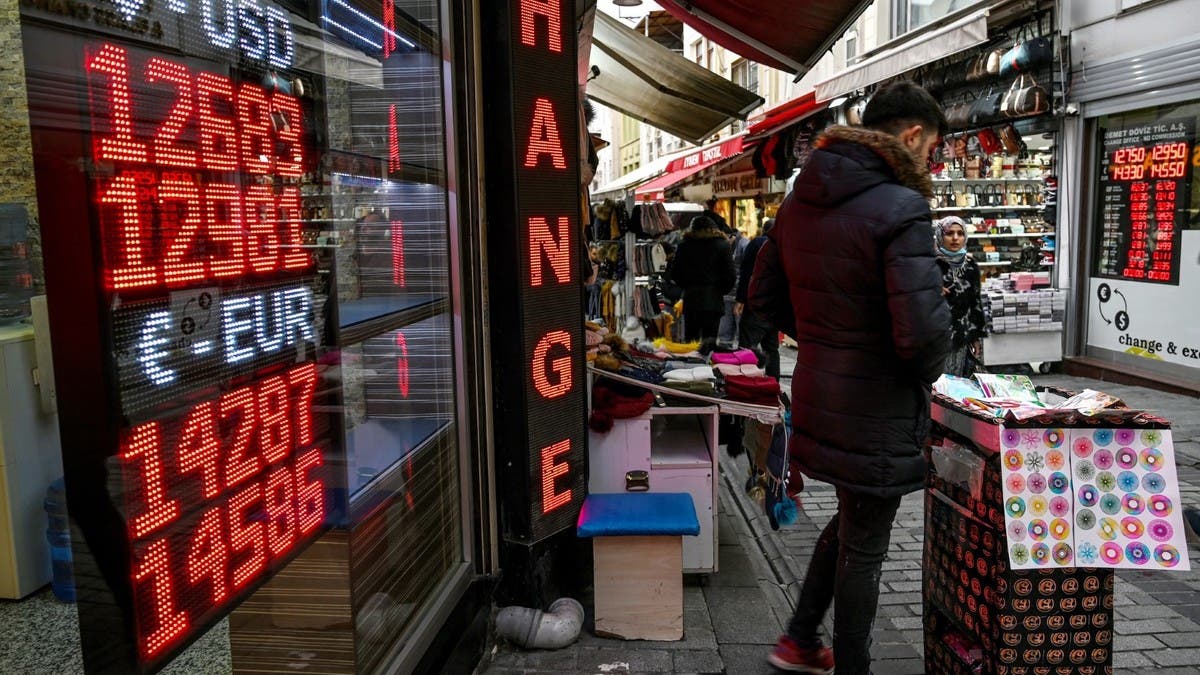For five years, Zahide Sogut asked her bosses at a car parts factory on the industrial fringes of Istanbul for a pay rise. With inflation soaring, they finally agreed, but for Sogut it was too little, too late.
For the latest headlines, follow our Google News channel online or via the app.
Earlier this year, she and dozens of her colleagues launched a strike and protests outside the plant as annual inflation topping 60 percent triggers a slew of demands for higher wages and labour rights among low-paid Turkish workers.
“We’ve learned during this resistance that no one will give us our rights, we have to fight for them,” Sogut, 30, told the Thomson Reuters Foundation during a protest at Farplas Automotive, her former workplace.
Sogut and about 150 of her colleagues who had tried to unionize workers at the factory were fired and police were brought in to break up the ensuing protests. The fired workers have been demonstrating outside the factory ever since.
Farplas Automotive did not respond to a request for comment, but the chief executive of its parent company Fark Holding told local media the firm had not interfered in union organizing, and denied the protests were linked to wages or labor rights.
Turkey is ranked among the world’s 10 worst countries for workers by the International Trade Union Confederation (ITUC) citing widespread union-busting, repression of strikes, and arrests and prosecutions of union leaders.
“Otherwise successful unionization drives are prevented by sacking union leaders, relocating them to workplaces hundreds of miles away, or calling in police with pepper spray,” said ITUC Deputy General Secretary Owen Tudor.
The Labor Ministry did not respond to a request for comment.
However, workers from couriers to shipbreakers have launched a series of strikes in recent months, in some cases winning rare concessions.
At least 108 strikes were staged in January and February – more than the average annual total seen in recent years – according to data gathered by the Labor Studies Community, a group of researchers studying workers’ rights in Turkey.
All but one was considered unauthorized by officials.
“Due to the huge economic precariousness, workers, especially young ones, are interested in new forms of collective action and organizing,” said Isil Erdinc, a researcher on Turkish trade unions and politics who is affiliated to the Sorbonne University in Paris.
Barriers to strikes
Unions have long faced a difficult road in Turkey, where many were shuttered after a 1980 military coup.
Legal barriers to enter into a collective bargaining process or declare a strike remain high, and laws on workers’ rights are often poorly enforced, labor advocates say, noting a high level of informality in the workforce.
Only about one in 10 employees are in a union, showed the latest 2019 data from the Organization for Economic Co-operation and Development (OECD), though membership was on the rise.
However, much of that growth has been in conservative-leaning unions with ties to the government of President Recep Tayyip Erdogan, said Erdinc.
Following a failed coup in 2016, Erdogan’s government has tightened rules which heavily limit the right to protest.
Those rules are often used to prevent strikes, said Alpkan Birelma, an assistant professor at Ozyegin University in Istanbul.
Since 2016, police have intervened in almost one in five labor-related protests, compared to about 5 percent previously, he said.
In one of the most high-profile recent protests, warehouse workers for the supermarket chain Migros were detained by police and then fired from their jobs, drawing public sympathy and calls for a boycott.
Low-balled inflation?
Seeking to limit the impact of inflation on workers, the government raised the minimum wage by 50.4 percent from January, but union confederation Turk-Is said that scarcely put low-paid workers above the hunger threshold.
Opposition parties and some economists have cast doubt on official inflation data, suggesting the real figure could be much higher, and polls show Turks believe inflation is higher than official data suggests.
Like Sogut at the car parts factory, many workers say they decided to protest because pay offers meant to compensate for inflation were insufficient to cover surging living costs.
Some of the most prominent protests have been in sectors that gained visibility during the COVID-19 pandemic, from mass walkouts by healthcare workers to noisy street demonstrations by couriers for the major Turkish e-commerce platform Trendyol.
The Trendyol couriers and the workers from the Migros supermarket chain were eventually offered increased wages, and the fired Migros workers were reinstated.
“Their gains weren’t huge, we shouldn’t exaggerate them, but labor protests in Turkey aren’t usually that successful,” said Birelma, noting many of the recent strikes were organized by workers themselves or with help from small independent unions.
Turkey’s unions will need to modernize their approach if they are to attract new members on the back of the protesters’ successes, said Huseyin Sevgi, an associate professor of labor economics and industrial relations at Kirklareli University.
They must convince younger workers of their relevance, improve their use of social media and outreach to service-sector workers, he said.
Standing outside the Farplas Automotive factory, fired employee Betul Oral said she and her colleagues had been inspired by the concessions won by other protesting workers.
“People were scared to go out on the street (but) seeing that gave us hope,” she said.
“The Migros workers won; if we stay standing, others can win as well.”
Read more:
Turkish inflation hits fresh record at 61.1 percent last month
Turkey’s lira declines to weakest since December over Ukraine concerns
Turkey central bank extends rate pause even as Ukraine war, Fed rate hike test lira

 World3 years ago
World3 years ago
 World3 years ago
World3 years ago
 Business11 months ago
Business11 months ago
 Entertainment7 years ago
Entertainment7 years ago
 World7 years ago
World7 years ago
 Entertainment7 years ago
Entertainment7 years ago






